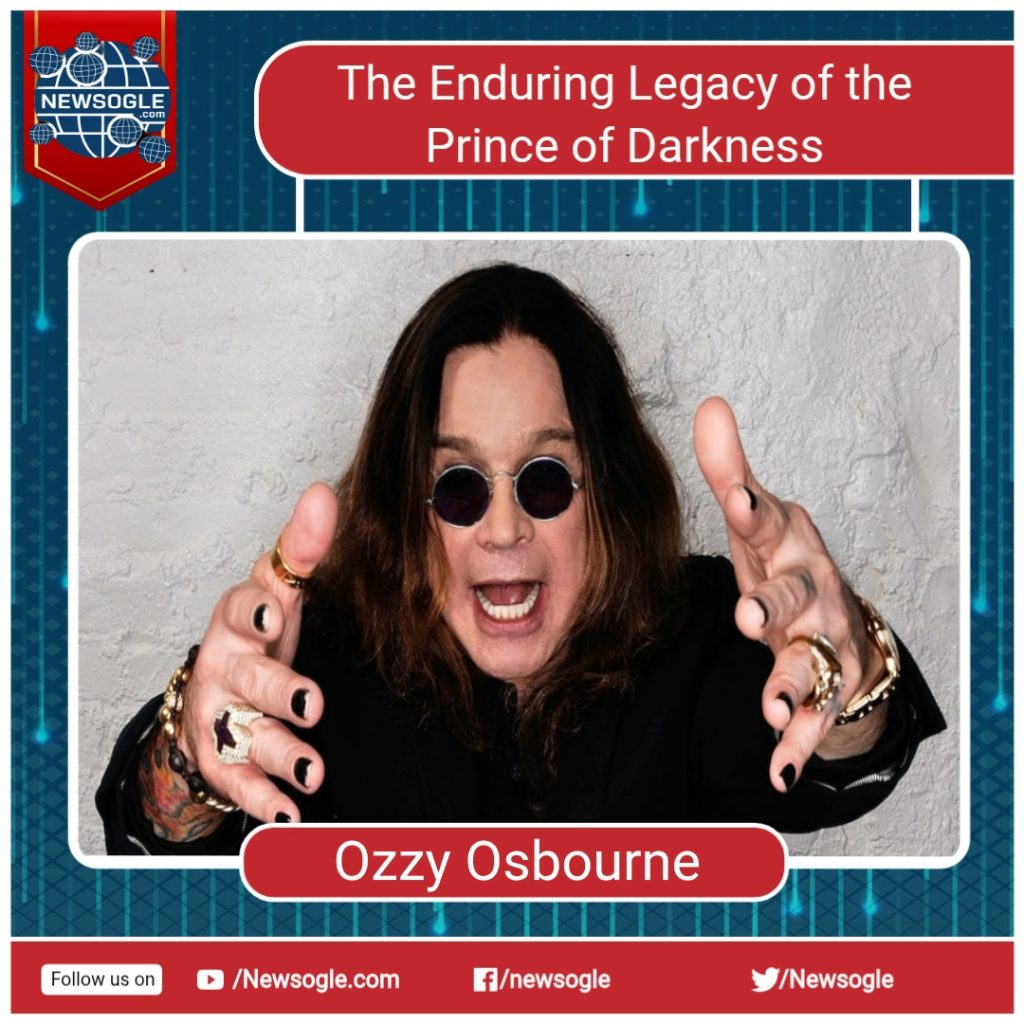
Keywords: Ozzy Osbourne, Ozzy Osbourne death, how did Ozzy Osbourne die, Black Sabbath, Prince of Darkness, heavy metal legend, rock icon, Parkinson’s disease, Ozzy Osbourne health struggles, music career, solo albums, The Osbournes, Sharon Osbourne, rock and roll hall of fame, farewell tour, No More Tours 2, metal history, iconic rock star, living legend, rock and roll survivor.
Table of Contents
In the pantheon of rock and roll, few names resonate with the raw power, theatricality, and sheer endurance of Ozzy Osbourne. Known globally as the “Prince of Darkness,” the legendary frontman of Black Sabbath and a hugely successful solo artist, Ozzy has carved an indelible mark on music history. His career spans over five decades, marked by groundbreaking albums, electrifying live performances, and a public persona that is both outrageous and endearing. However, alongside his immense fame, a persistent and often alarming trend has emerged: the frequent circulation of rumors regarding Ozzy Osbourne’s death. Despite these recurring false reports, it is crucial to state unequivocally: Ozzy Osbourne is alive.
This comprehensive post aims to delve into the extraordinary life and career of Ozzy Osbourne, explore the reasons behind the persistent “Ozzy Osbourne death” rumors, clarify his current health status, and celebrate the enduring legacy of a true rock and roll survivor. We will address directly the question of “how did Ozzy Osbourne die” by emphasizing that he has not, in fact, passed away, but has faced and continues to battle significant health challenges.
The Genesis of a Legend: From Black Sabbath to Solo Stardom
John Michael Osbourne, born in Aston, Birmingham, England, in 1948, would eventually become the iconic Ozzy Osbourne. His early life was marked by working-class struggles, but his passion for music ignited a path that would change the landscape of rock forever.
Black Sabbath: Forging Heavy Metal
In 1968, Ozzy co-founded Earth, which soon became Black Sabbath, alongside guitarist Tony Iommi, bassist Geezer Butler, and drummer Bill Ward. This quartet would go on to create a sound that was darker, heavier, and more ominous than anything heard before, laying the foundational bricks of what would become heavy metal. Albums like Black Sabbath (1970), Paranoid (1970), and Master of Reality (1971) were revolutionary, featuring crushing riffs, dark lyrical themes, and Ozzy’s haunting, distinctive vocals. They explored themes of war, social injustice, and the occult, resonating with a generation seeking an alternative to the prevailing psychedelic rock. Black Sabbath’s influence is immeasurable, inspiring countless bands and genres. Ozzy’s stage presence, a blend of wild abandon and menacing theatricality, quickly made him a captivating frontman.
The Solo Reign: “Blizzard of Ozz” and Beyond
Despite Black Sabbath’s monumental success, Ozzy’s tenure with the band was tumultuous, leading to his departure in 1979. Many speculated that his career was over, but under the shrewd management of his future wife, Sharon Arden (later Sharon Osbourne), Ozzy launched a solo career that would prove even more successful in some respects.
His debut solo album, Blizzard of Ozz (1980), featuring the prodigious talents of guitarist Randy Rhoads, was a critical and commercial triumph. Hits like “Crazy Train” and “Mr. Crowley” showcased a renewed energy and a more polished, yet still heavy, sound. This was followed by Diary of a Madman (1981), further solidifying his solo status. Tragically, Randy Rhoads died in a plane crash in 1982, a devastating blow that Ozzy struggled to overcome.
Nevertheless, Ozzy persevered, releasing a string of successful albums throughout the 1980s and 1990s, including Bark at the Moon, The Ultimate Sin, No More Tears, and Ozzmosis. He became a global rock icon, known for his powerful vocals, outrageous stage antics (including the infamous bat biting incident), and a larger-than-life persona that earned him the moniker “Prince of Darkness.” His live shows were legendary, a spectacle of fire, smoke, and raw rock energy.
The Reality TV Phenomenon: “The Osbournes”
In the early 2000s, Ozzy’s career took an unexpected turn with the launch of “The Osbournes” reality television show on MTV. The show offered an unvarnished, often chaotic, look into the daily lives of Ozzy, Sharon, and their children Kelly and Jack. It became a cultural phenomenon, exposing Ozzy to a new generation of fans and revealing a surprisingly vulnerable and humorous side to the heavy metal legend behind the “Prince of Darkness” facade. While it brought him mainstream recognition, it also shifted public perception, sometimes overshadowing his musical achievements with his eccentric family life.
The Persistent Rumors: Why “Ozzy Osbourne Death” Trends
Despite his continued presence in music and media, the phrase “Ozzy Osbourne death” has unfortunately become a recurring trending topic online. This phenomenon is largely driven by several factors:
- Age and Longevity in Rock: Ozzy is now in his mid-70s, an age where many rock stars have either retired or passed away. The sheer length of his career and his survival through decades of rock and roll excess often lead to speculation.
- Well-Documented Health Struggles: This is the most significant factor. Ozzy has been remarkably open about his various health battles, which have unfortunately been severe and highly publicized. These struggles often lead to premature and inaccurate reports of his demise.
- Sensationalism in Media and Social Media: The internet, while a powerful tool for information, is also a breeding ground for misinformation. Sensational headlines and unverified social media posts can quickly go viral, leading to widespread confusion and false alarms.
- His “Prince of Darkness” Persona: Ironically, his dark, often morbid, stage persona might also contribute to the morbid fascination with his health and mortality.
- The Nature of Fame: Famous individuals, especially those with long and eventful careers, are often subjected to intense scrutiny, and any health issue can be magnified into a death rumor.
It’s important for fans and the public to rely on official sources for updates on his health, such as statements from Ozzy himself, Sharon Osbourne, or his official representatives.
Ozzy Osbourne’s Health Battles: A Testament to Resilience
To address “how did Ozzy Osbourne die” directly, it’s crucial to understand that while he has not died, he has faced a series of profound and life-altering health challenges that have made headlines and fueled the rumors. His journey through these ailments is a testament to his incredible resilience.
- Parkinson’s Disease Diagnosis: In 2020, Ozzy publicly revealed that he had been diagnosed with a form of Parkinson’s disease called PRKN 2. While not a death sentence, Parkinson’s is a progressive neurological disorder that affects movement, balance, and coordination. This diagnosis explained many of the physical difficulties he had been experiencing.
- Spinal Injuries and Surgeries:
- 2003 Quad Bike Accident: A severe quad bike accident in 2003 left him with a broken neck vertebra, a broken collarbone, and several broken ribs. This accident required extensive surgery and a long recovery period.
- 2019 Fall: In 2019, Ozzy suffered a severe fall at his home, which aggravated injuries from his 2003 quad bike accident. This fall dislodged metal rods that had been surgically implanted in his neck and spine. This led to a series of highly complex and painful surgeries.
- Subsequent Surgeries and Recovery: Over the past few years, Ozzy has undergone multiple spinal surgeries, including one major operation in 2022 that Sharon Osbourne described as “life-altering.” These surgeries aimed to realign his spine and improve his mobility. The recovery has been slow and arduous, involving extensive physical therapy.
- Pneumonia and Other Infections: In addition to his spinal issues, Ozzy has battled severe bouts of pneumonia and other infections, which have been particularly concerning given his age and underlying health conditions.
- Blood Clots and Nerve Damage: He has also dealt with blood clots and nerve damage, further complicating his health picture.
These health issues have significantly impacted his ability to tour and perform live. In February 2023, Ozzy announced his retirement from touring, citing his physical inability to meet the demands of extensive travel and live performances. This was a heartbreaking decision for him and his fans, as performing has always been his lifeblood. However, he has repeatedly expressed his desire to perform “one-off” shows if his health permits, indicating his enduring passion for music and his fans.
The Enduring Legacy: More Than Just Music
Ozzy Osbourne’s legacy extends far beyond the realm of music. He is a cultural phenomenon, a survivor, and an inspiration to millions.
- Pioneer of Heavy Metal: As a founding member of Black Sabbath, he helped create a genre that continues to thrive globally. His influence on countless metal and rock bands is undeniable.
- Solo Success: His solo career proved that he was more than just a frontman; he was a creative force in his own right, producing iconic albums and timeless rock anthems.
- Cultural Icon: His unique personality, outrageous antics, and surprising vulnerability made him a beloved figure even outside the rock world, particularly through “The Osbournes.”
- Resilience: Despite decades of personal struggles with addiction and severe health issues, Ozzy has repeatedly defied expectations, demonstrating an unparalleled will to live and create. His ongoing battle with Parkinson’s and his spinal injuries, and his determination to keep fighting, make him a symbol of resilience.
- Honors and Awards: He has been inducted into the Rock and Roll Hall of Fame twice (with Black Sabbath and as a solo artist), received a Grammy Lifetime Achievement Award, and countless other accolades, cementing his place in music history.
His wife, Sharon Osbourne, has been a constant pillar of support, not just as his manager but as his fierce protector and advocate, navigating his career and health with unwavering dedication.
Dispelling the Rumors: Ozzy is Still Rocking (in His Own Way)
The persistent rumors about Ozzy Osbourne’s death are a disservice to a man who has given so much to music and who continues to fight bravely against his health challenges. Every time these false reports surface, his family is forced to address them, causing unnecessary distress.
Ozzy himself has often joked about his own mortality, embracing his “Prince of Darkness” persona. However, the reality of his health struggles is serious, and it’s important for the public to differentiate between his public image and his personal battles.
While he may not be able to embark on extensive tours, Ozzy remains engaged with his music. He has released new material in recent years, including the critically acclaimed albums Ordinary Man (2020) and Patient Number 9 (2022), proving that his creative spirit remains strong. These albums feature collaborations with a host of rock legends, demonstrating his continued relevance and respect within the music community.
His public appearances, though less frequent, are cherished by fans. Each time he steps out, whether for a brief performance or an interview, it’s a reminder that the legend lives on.
Conclusion: A Living Legend’s Unyielding Spirit
Ozzy Osbourne is not just a musician; he is a phenomenon, a survivor, and a testament to the enduring power of rock and roll. His journey from the industrial heartland of Birmingham to global superstardom, marked by both triumphs and profound personal struggles, is nothing short of extraordinary.
The recurring rumors of “Ozzy Osbourne death” are, thankfully, false. While he continues to battle significant health challenges, particularly Parkinson’s disease and the aftermath of multiple spinal surgeries, his spirit remains unbroken. His resilience, his passion for music, and the unwavering support of his family are a source of inspiration.
Ozzy Osbourne’s legacy is secure. He is a heavy metal legend, a rock icon, and a living legend whose influence will continue to reverberate through generations of musicians and fans. He has defied expectations, survived countless challenges, and continues to remind us that the “Prince of Darkness” still has a spark, and the music, in his own unique way, plays on. Long live the Prince.





